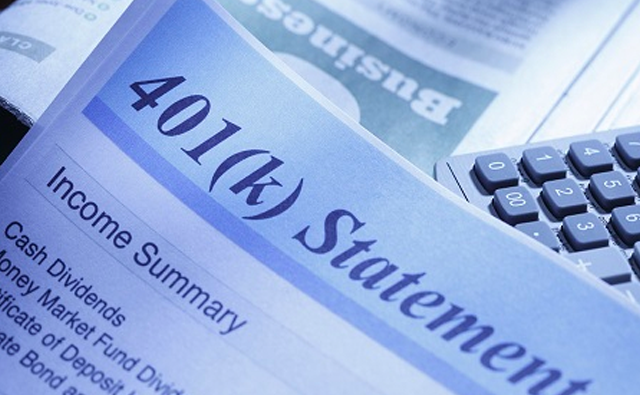
A retirement plan “sponsor” is the individual or entity that manages a retirement plan on behalf of employees. This position comes with a significant amount of responsibility, and it’s natural to have questions about how to best set up and operate this critical employee benefit and retirement vehicle. In this article, we wanted to share five frequently asked questions that we hear from 401(k) plan sponsors and our perspective on each. As always, we encourage you to connect with our team if you’d like help answering these questions for your company’s plan.
Question #1: Am I Paying Too Much?
As a plan sponsor, part of your responsibility is to ensure that you are getting good value for the fees you pay. Typically, these fees come from three services:
- Recordkeeping: 401(k) recordkeepers track the assets held within the plan, including rollover investments, traditional and Roth investments, and all other money. An employee logs into the recordkeeping system to monitor their account, change investments, and manage contributions. In conjunction with the recordkeeper, a separate custodian keeps track of the investments.
- Administration: The third-party administrator (TPA) files the plan document and amendments. The TPA performs compliance activities, including preparing Form 5500 and required notices. If the recordkeeper also performs the administration, the services are considered “bundled.” After the notices get prepared, either the plan sponsor or the administrator distributes these documents to plan participants.
- Plan Investment Advisory: The plan sponsor is responsible for monitoring the investments that are available to plan participants. Sponsors are held to a duty of prudence; to meet that standard will typically use a Broker or an Investment Advisor to help design the plan and conduct ongoing investment due diligence.
Before you can determine if you are paying too much, you first need to determine what you are paying for each of the services. In 2012, the Department of Labor (DOL) prepared a final rule to improve transparency as it relates to the fees and expenses charged in retirement plans. [1] Almost ten years have passed since fee transparency became more important, and now, pending legislation has been drafted to make costs easier to understand. This legislation is important, since the exact pricing on plans can still be difficult to understand. In fact, a recent survey found that 64% of 401(k) participants thought they weren’t paying any administrative or investment fees as part of their plan — or didn’t realize they were paying any fees at all.[2]
With your plan, neither the requirement nor the objective is to pay the lowest fees. Your responsibility remains to ensure you receive good value for the services you want and need. To that end, we routinely perform benchmarking studies for sponsors of plans in the $1 million to $100 million range. As part of this fee examination, we break down exactly what plan sponsors (and participants) pay and what services they get for the fees they pay. We also compare those fees to other plans of a similar size and similar industries.
We recommend, and federal guidelines suggest, that plan sponsors review their fee structure every 3–5 years or any time there is a large change to the plan. We can help with this process. If a review indicates that a change in the plan’s structure makes sense, we might be able to help lower the overall costs.
Question #2: Am I Personally Exposed To Legal Liability?
Plan sponsors face several potential legal liabilities, some of which can be offloaded or insured against.
“Share class” lawsuits, which argue that plan participants paid too much for shares that could have been acquired at a lower fee (and may constitute negligence on the part of the plan sponsor), are one of the primary concerns. These suits are more of a risk for larger plans since law firms typically take such cases on a contingency basis. Though in recent years, there have been more share class suits targeting smaller plans. The best way to prevent a share class lawsuit is to conduct periodic reviews of the share classes offered, the prices of those shares, and how that pricing compares to other plans of similar size and scope.
Another concern is whether the funds in the plan have the same name as the recordkeeper. When the plan is small, that may be the most effective way to build your plan. As your plan grows, a lack of fund manager diversity may call into question the prudent process you employ to follow your fiduciary responsibility. If this is a concern, one solution may be to bring on an independent financial advisor (like SWP) to help eliminate this conflict of interest.
Finally, it can be valuable to explore fiduciary liability insurance. This type of coverage doesn’t protect against overt theft, but many other risks (like share class lawsuits) are covered. The reality is, however, that many plans do not hold fiduciary liability insurance. This is because the biggest risks to small plans can be effectively managed by implementing the right processes, so insurance may not be necessary. However, there are instances in which it makes sense, and we help plan sponsors understand if insurance is the right fit for their needs.
Question #3: Should Someone Else Take On The Responsibility?
Running a retirement plan is a lot of work, and many business owners prefer to offload this responsibility to another party. One option is to enlist an independent investment professional to serve as a co-fiduciary or a discretionary fiduciary. When going down this path, we’ve found that most plan sponsors prefer to have a 3(21) co-fiduciary. This arrangement means the co-fiduciary shares in any potential liability, but the plan sponsor still maintains the final say over the plan itself.
Some plan sponsors, however, are looking to completely offload the management responsibility to an outside party. In that case, they can designate a 3(38) discretionary fiduciary. Additionally, some sponsors name a 3(16) administrative fiduciary who can handle all the administrative work, such as signing the Form 5500 tax return and initiating and approving loans and distributions from the plan. With an administrative fiduciary, the overall duty to monitor the plan remains with the sponsor, but they can spend less time focusing on administrative tasks. To be a true 3(16) fiduciary, the provider must acknowledge this role in the agreement that is signed with them.
Having a named co- or discretionary investment fiduciary means plan sponsors can minimize their exposure to legal liability related to investments. The named fiduciary (e.g., a firm like us) will handle those aspects; all the plan sponsor needs to do is properly manage the fiduciary. How do you know if your advisor, broker, or recordkeeper is a fiduciary on your behalf? To be a fiduciary, the provider must specifically acknowledge that status in the agreement you sign with them.
If a plan sponsor is working with a broker or recordkeeper who is not a fiduciary, many then ask: what is the benefit of working with a fiduciary advisory? It all comes down to interests and incentives. A fiduciary advisor has the legal and ethical obligation to put the best interests of the plan sponsor and plan participants ahead of their own. In doing so, they are required to strive to eliminate conflicts of interest in the relationship, separate financial advice from the custody of assets, and provide transparency in the fees charged for their services.
Question #4: Is the Plan Exposed To Cybersecurity Threats?
Cybersecurity threats are on the mind of many plan sponsors, and for a good reason: in March, the Government Accountability Office (GAO) warned that 401(k) plans are vulnerable to hacking.[3] If there is a data breach in your plan, plan participants could have their personal information — or even their retirement funds — stolen. Plan sponsors bear some of the responsibility for protecting participants’ personal information and making sure it is not misused in any way (e.g., cross-selling for marketing purposes).[4]
There are processes and procedures that plan sponsors need to follow to ensure that if a data breach does occur, they are not held responsible. An independent advisor can help review your processes and those utilized by other providers to reduce the risk of cybercrime.
Additionally, your recordkeeper may have recommended steps or resources that can enhance your protection. For example, John Hancock offers a “guarantee” when the plan sponsor follows several key steps. Fidelity also offers guidance that can help you secure your plan and educate plan participants on best practices. These are just two examples, and we always recommend plan sponsors explore what kind of resources their recordkeeper may be able to provide as it relates to cybersecurity.
Question #5: What Happens If The Market Goes Down?
When markets are up, plan participants may focus less on their portfolio value. But when the markets experience a correction, participants — especially those close to retirement — may try to hold plan sponsors responsible. Clearly, the plan sponsor cannot control the direction of the market; however, periods of market unrest can be extremely stressful and time-consuming for plan sponsors.
That’s when it helps to have an investment fiduciary or co-fiduciary to help plan participants select the right asset allocation to support their investment goals. In March of 2020, when the market saw a significant correction due to the start of the COVID-19 pandemic, our team worked with a number of plan sponsors and their respective participants to bring some perspective to the market correction.
Closing Thoughts
In writing this article, we wanted to share strategies that can help your plan meet the needs of your business, stakeholders, and plan participants. We hope this article touched on some of the questions that you, as a plan sponsor or plan participant, likely have on your mind. If you are considering these questions, know that other plan sponsors have similar questions.
If you would like to discuss any of the information shared or would like a personalized consultation regarding your company’s retirement plan, we invite you to connect with our team.
[1] Department of Labor, Final Rule to Improve Transparency of Fees and Expenses to Workers in 401(k)-Type Retirement Plans. (Link)
[2] CNBC, Roughly 40% of Americans don’t understand 401(k) fees, government watchdog finds. (Link)
[3] CNBC, 401(k) investors vulnerable to cyber hacks, watchdog warns. (Link)
[4] Wagner Law, Misuse of Participant Confidential Data. (Link)
Disclosure:
This article contains general information that is not suitable for everyone. The information contained herein should not be constructed as personalized investment advice. Past performance is no guarantee of future results. Reading or utilizing this information does not create an advisory relationship. An advisory relationship can be established only after the following two events have been completed (1) our thorough review with you of all the relevant facts pertaining to a potential engagement; and (2) the execution of a Client Advisory Agreement. There is no guarantee that the views and opinions expressed in this article will come to pass. Investing in the stock market involves gains and losses and may not be suitable for all investors. Information presented herein is subject to change without notice and should not be considered as a solicitation to buy or sell any security.
Strategic Wealth Partners (‘SWP’) is an SEC registered investment advisor with its principal place of business in the State of Illinois. The brochure is limited to the dissemination of general information pertaining to its investment advisory services, views on the market, and investment philosophy. Any subsequent, direct communication by SWP with a prospective client shall be conducted by a representative that is either registered or qualifies for an exemption or exclusion from registration in the state where the prospective client resides. For information pertaining to the registration status of SWP, please contact SWP or refer to the Investment Advisor Public Disclosure website (www.adviserinfo.sec.gov).
For additional information about SWP, including fees and services, send for our disclosure brochure as set forth on Form ADV from SWP using the contact information herein. Please read the disclosure brochure carefully before you invest or send money (http://www.stratwealth.com/legal).


